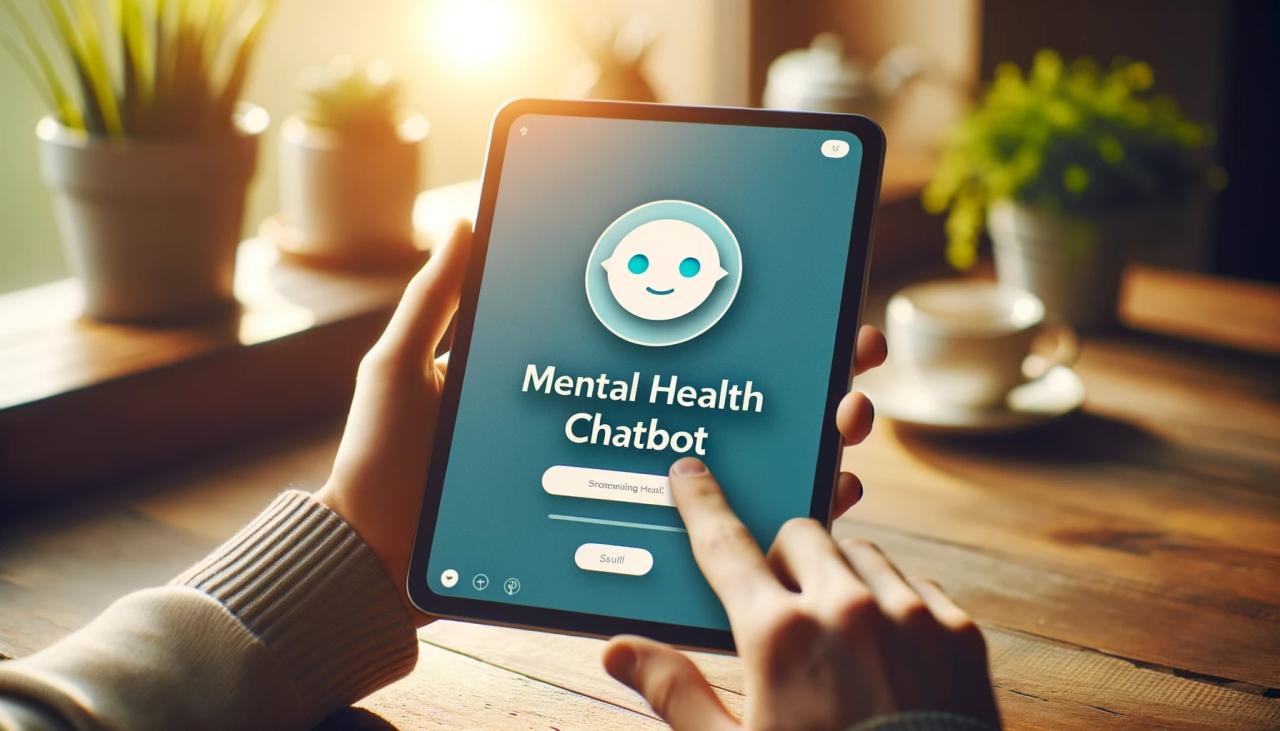In the realm of mental health support, technology has paved the way for innovative solutions. Gadget-Based Solutions for Mental Health Support offers a unique perspective on how gadgets are reshaping the landscape of mental well-being. Dive into this insightful discussion to uncover the impact of these modern tools on mental health care.
As we explore the different types of gadgets, user experiences, challenges, and ethical considerations, you'll gain a comprehensive understanding of the role technology plays in enhancing mental health support.
Importance of Gadget-Based Solutions
Gadget-based solutions are playing a crucial role in revolutionizing mental health support by providing innovative and accessible tools to help individuals manage their mental well-being.
Examples of Gadgets for Mental Health Support
- Wearable fitness trackers: Devices like Fitbit or Apple Watch can monitor physical activity, sleep patterns, and heart rate, offering insights into overall health and well-being.
- Mobile apps: Apps like Headspace or Calm provide guided meditation, breathing exercises, and mindfulness techniques to reduce stress and anxiety.
- Virtual reality (VR) headsets: VR technology is used in exposure therapy to treat phobias, PTSD, and anxiety disorders in a controlled and immersive environment.
Benefits of Using Gadgets for Mental Health
- Accessibility: Gadgets can be used anytime, anywhere, making mental health support more convenient and available on-the-go.
- Personalization: Many gadgets offer personalized insights and recommendations based on individual data, tailoring the support to the user's specific needs.
- Engagement: Interactive features and gamification elements in gadgets can increase user engagement and motivation in managing their mental health.
- Monitoring: Gadgets allow users to track their progress over time, providing valuable data and feedback to monitor mental health trends and improvements.
Types of Gadget-Based Solutions

When it comes to mental health support, there are various types of gadgets that are designed to help individuals in different ways. These gadgets utilize technology to provide tools and resources for managing mental health challenges.
Wearable Devices
Wearable devices such as smartwatches and fitness trackers can monitor vital signs like heart rate, sleep patterns, and activity levels. These devices can provide valuable data to help individuals track their overall well-being and identify patterns that may affect their mental health.
Mood Tracking Apps
Mood tracking apps allow users to log their emotions, thoughts, and activities throughout the day. By analyzing this data, individuals can gain insights into their mood patterns and potential triggers for stress or anxiety. These apps can also provide coping strategies and suggest activities to improve mental well-being.
Virtual Reality (VR) Therapy
Virtual reality therapy uses immersive technology to create simulated environments that help individuals manage anxiety, phobias, and PTSD. By exposing individuals to controlled virtual scenarios, VR therapy can desensitize them to triggers and teach coping mechanisms in a safe and controlled setting.
Brainwave Monitoring Devices
Brainwave monitoring devices use electroencephalography (EEG) technology to measure brain activity and provide real-time feedback on a user's mental state. These devices can help individuals learn to regulate their emotions, improve focus, and reduce stress through neurofeedback training.
User Experience and Feedback

User experience plays a crucial role in the effectiveness of gadget-based mental health solutions. It determines how individuals interact with the technology and how it impacts their mental well-being. Real-life feedback and testimonials provide valuable insights into the usability and benefits of these gadgets, helping developers improve existing solutions and create better ones in the future.
Importance of User Experience
User experience encompasses the overall satisfaction and effectiveness of a gadget in addressing mental health issues. A positive user experience can lead to increased engagement, adherence to treatment plans, and improved mental health outcomes. On the other hand, a poor user experience may discourage individuals from using the gadget regularly, limiting its potential benefits
- Intuitive Design: Gadgets that are easy to use and navigate enhance user experience, making it more likely for individuals to incorporate them into their daily routines.
- Personalization: Tailoring the gadget to individual preferences and needs can improve user engagement and motivation to utilize the device for mental health support.
- Feedback Mechanisms: Providing users with opportunities to share their feedback and suggestions can help developers identify areas for improvement and enhance the overall user experience.
Real-Life Feedback and Testimonials
[Include a few examples of real-life feedback or testimonials from individuals who have used gadget-based mental health solutions. Highlight their experiences, the impact of the gadgets on their mental well-being, and any suggestions they may have for improvement.]
Influencing Future Development
User feedback is instrumental in shaping the development of future gadget-based solutions for mental health support. By listening to users' experiences and suggestions, developers can refine existing gadgets, introduce new features, and prioritize functionalities that are most beneficial to users.
This iterative process ensures that future solutions are better tailored to meet the evolving needs of individuals seeking mental health support through technology.
Challenges and Ethical Considerations

Implementing gadget-based solutions for mental health support comes with its own set of challenges and ethical considerations that need to be addressed.
Challenges Faced in Implementation
- Lack of accessibility: Not everyone has access to the necessary gadgets or technology required for these solutions, creating a barrier to entry for some individuals.
- Data privacy concerns: Collecting sensitive personal data through these gadgets raises questions about how this information is stored and used, potentially compromising user privacy.
- Reliability and accuracy: The effectiveness of gadget-based solutions in accurately assessing and monitoring mental health conditions is still being studied, leading to concerns about their reliability.
Ethical Considerations
- Informed consent: Users should be fully informed about the data being collected, how it will be used, and have the option to opt-out if they are uncomfortable with sharing certain information.
- Confidentiality: It is crucial to ensure that user data is kept confidential and not shared with third parties without explicit consent, maintaining trust between users and providers.
- Equity and inclusivity: Efforts should be made to ensure that gadget-based solutions are accessible to all individuals, regardless of their socioeconomic status or technological literacy.
Strategies to Overcome Challenges and Ensure Ethical Use
- Education and awareness: Providing clear information to users about the purpose and use of gadget-based solutions can help build trust and encourage participation.
- Regulatory compliance: Following regulations and guidelines related to data privacy and security can help mitigate risks and ensure ethical use of these solutions.
- User empowerment: Giving users control over their data and the ability to manage their settings can enhance transparency and promote ethical practices.
Last Recap
In conclusion, the journey through Gadget-Based Solutions for Mental Health Support has shed light on the transformative power of technology in this crucial domain. From user feedback to ethical dilemmas, this discussion has provided a holistic view of the opportunities and challenges in leveraging gadgets for mental well-being.
Question Bank
What are some examples of gadgets used for mental health support?
Examples include wearable devices like smartwatches that track biometric data, apps for meditation and mindfulness, and virtual reality tools for exposure therapy.
How does user feedback influence the development of future gadget-based solutions?
User feedback plays a crucial role in refining gadgets for mental health support, guiding developers to improve usability and effectiveness based on real-world experiences.
What are some ethical considerations when using gadgets for mental health support?
Ethical considerations include data privacy, consent for monitoring, and ensuring that gadgets do not replace human interaction in therapy.








